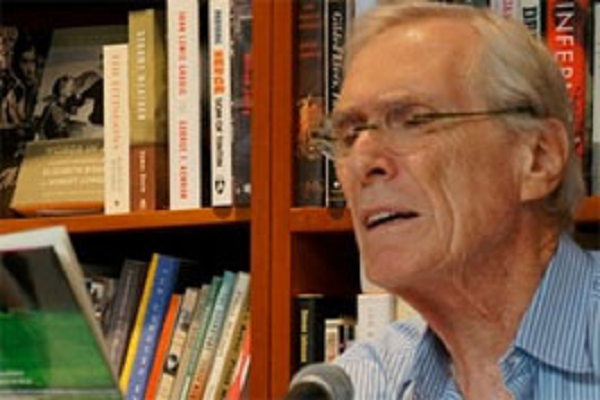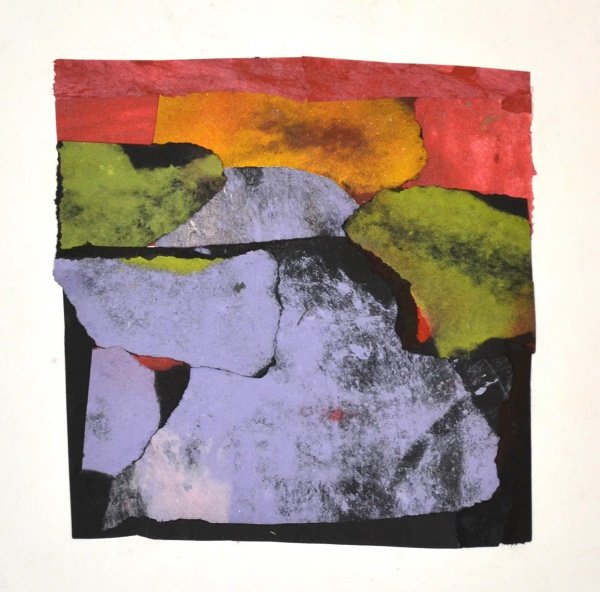Mark Strand: voz capital de la poesía norteamericana contemporánea (Esp | Eng)
ESP
Nacido en Canadá el 11 de abril de 1934, Mark Strand, vivió la mayor parte de su vida en Estados Unidos, y varios años en Europa y Latinoamérica (México, Colombia, Perú, Brasil). Aunque su lugar está en la poesía, ejerció la docencia en varias importantes universidades como Iowa, Columbia, Princeton, Nueva York, Río de Janeiro, entre otras. Fue honrado en vida de diversos modos, como con el Premio Pullitzer 1999 y el Wallace Stevens 2004, por la Biblioteca del Congreso de EUA (1990, 1991) y la Academia Americana de las Artes y las Letras (2009) además de recibir varias becas.
Publicó unos 12 libros de poemas, además de relatos (incluidos unos para niños) y ensayos. Pero, como él mismo reconoció, comenzó siendo pintor, oficio que no abandonó, y desarrolló una labor de crítico de arte, de lo que queda testimonio en trabajos, por ejemplo, acerca de la obra de su preferido, Edward Hopper. También tradujo a poetas, desde Dante hasta Rafael Alberti, Carlos Drummond de Andrade y Octavio Paz (con este mantuvo una gran amistad, y Paz lo tradujo también).
ENG
Born in Canada on April 11, 1934, Mark Strand, lived most of his life in the United States, and several years in Europe and Latin America (México, Colombia, Perú, Brasil). Although his place is in poetry, he taught at several important universities such as Iowa, Columbia, Princeton, New York, Río de Janeiro, among others. He was honored in life in several ways such as the 1999 Pullitzer Prize and the 2004 Wallace Stevens Award, by the Library of Congress (1990, 1991) and the American Academy of Arts and Letters (2009) in addition to receiving several scholarships.
He has published some 12 books of poems, as well as short stories (including some for children) and essays. But, as he himself acknowledged, he began as a painter, a profession he never abandoned, and developed a work as an art critic, as evidenced in works, for example, about the work of his favorite, Edward Hopper. He also translated poets, from Dante to Rafael Alberti, Carlos Drummond de Andrade and Octavio (with the latter he maintained a great friendship, and Paz also translated him).

La poesía de Mark Strand, como ha apreciado la crítica, está marcada por su pertenencia raigal, es decir, por su origen no urbano, lo que aparecerá con cierto dejo de nostalgia, incluso melancolía, pero también, sin duda, por la modernidad, que se manifiesta en su visión muy irónica y cáustica, con presencia de lo ordinario.
También, es destacable la asunción que hiciera de la influencia surrealista, por ser un gran lector de poesía europea, lo que podemos observar en la construcción de sus imágenes.
Entre sus temas fundamentales podemos hallar la tierra (pero no desde una óptica romántica), la ausencia (la muerte, una forma de esta) y la poesía. Siguiendo cierta tradición norteamericana, poetizó y ensayó sobre la poesía, y lo declaró incluso en entrevistas. Así, por ejemplo:
(...) yo escribo sobre mí mismo, claro, pero en una versión mitológica. Creo que he creado un mito de mí mismo que no es yo mismo, y que, aunque tiene elementos de mi propia vida, está generalizado: en consecuencia, otros pueden sentir como propio este personaje.
Reproduciré a continuación unos pocos poemas breves de su interesante obra.
Mark Strand's poetry, as critics have appreciated, is marked by his roots, that is, by his non-urban origin, which will appear with a certain hint of nostalgia, even melancholy, but also, undoubtedly, by modernity, which is manifested in his very ironic and caustic vision, with the presence of the ordinary.
Also, it is remarkable the assumption that he made of the surrealist influence, being a great reader of European poetry, which we can observe in the construction of his images.
Among his fundamental themes we can find the earth (but not from a romantic point of view), absence (death, a form of it) and poetry. Following a certain American tradition, he poeticized and essayed on poetry, and he even declared it in interviews. Thus, for example:
(...) I write about myself, of course, but in a mythological version. I believe that I have created a myth of myself that is not myself, and that, although it has elements of my own life, it is generalized: consequently, others may feel this character as their own.
I will reproduce below a few short poems from his interesting work.

La buena vida
Estás en la ventana.
Hay una nube de vidrio en forma de corazón.
Hay suspiros del viento como huecos en tu palabra.
Eres el fantasma en el árbol ahí afuera.La calle está quieta.
El tiempo, como mañana, como tu vida,
en parte está aquí, en parte por las nubes.
¿Qué le vas a hacer?La buena vida no avisa.
Sufre las temporadas de desesperación
y se aparece, de pie, inadvertida, sin promesas,
y ahí estás.
The Good Life
You stand by the window.
There is a glass cloud in the shape of a heart.
The wind’s sighs are like caves in your speech.
You are the ghost in the tree outside.The street is quiet.
The weather, like tomorrow, like your life,
is partially here, partially up in the air.
There is nothing you can do.The good life gives no warning.
It weathers the climates of despair
and appears, on foot , unrecognized, offering nothing,
and you are there.
El guardián
Puesta de sol. Hierba en llamas.
Día perdido, luz perdida.
¿Por qué me gusta lo que se desvanece?Tú que partiste, que partías,
¿qué cuartos oscuros habitas?
Guardián de mi muerte,cuida mi ausencia. Estoy vivo.
The Guardian
The sun setting. The lawns on fire.
The lost day, the lost light.
Why do I love what fades?You who left, who were leaving,
what dark rooms do you inhabit?
Guardian of my death,preserve my absence. I am alive.
Los restos
Para Bill y Sandy Baileysub>
Me vacío de los nombres de otros. Vacío mis bolsillos. ¿Para qué todo esto? Las horas hicieron lo suyo. Mis padres se levantan de sus tronos
Vacío mis zapatos y los dejo al lado del camino.
Por la noche atraso los relojes;
Abro el álbum de familia y me veo de niño.
Digo mi propio nombre. Digo adiós.
Las palabras una tras otra se van en el viento.
Quiero a mi esposa pero le digo que se vaya.
en lechosos cuartos de nubes. ¿Cómo poder cantar?
El tiempo dice lo que soy. Cambio y sigo lo mismo.
Me vacío de mi vida y mi vida se queda.
The Remains
I empty myself of the names of others. I empty my pockets.
I empty my shoes and leave them beside the road.
At night I turn back the clocks;
I open the family album and look at myself as a boy.What good does it do? The hours have done their job.
I say my own name. I say goodbye.
The words follow each other downwind.
I love my wife but send her away.My parents rise out of their thrones
into the milky rooms of clouds. How can I sing?
Time tells me what I am. I change and I am the same.
I empty myself of my life and my life remains.
Vacío y, a la vez, presencia; entre esta contradictoria y complementaria relación parece moverse la poesía de Mark Strand. Está el deseo de permanecer, como en las imágenes del árbol o la puesta de sol observados, y también la despedida y la pérdida, lo que se desvanece diariamente.
Emptiness and, at the same time, presence; between this contradictory and complementary relationship Mark Strand's poetry seems to move. There is the desire to remain, as in the images of the observed tree or sunset, and also the parting and loss, that which fades daily.
Referencias | References:
Strand, Mark. (1979). 20 poemas (Trad: Octavio Armand). Caracas: Fundarte.
https://circulodepoesia.com/2012/10/patente-de-corso-mark-strand/






Esta publicación ha recibido el voto de Literatos, la comunidad de literatura en español en Hive y ha sido compartido en el blog de nuestra cuenta.
¿Quieres contribuir a engrandecer este proyecto? ¡Haz clic aquí y entérate cómo!
https://inleo.io/threads/josemalavem/re-josemalavem-2xtihwymg
The rewards earned on this comment will go directly to the people ( josemalavem ) sharing the post on LeoThreads,LikeTu,dBuzz.